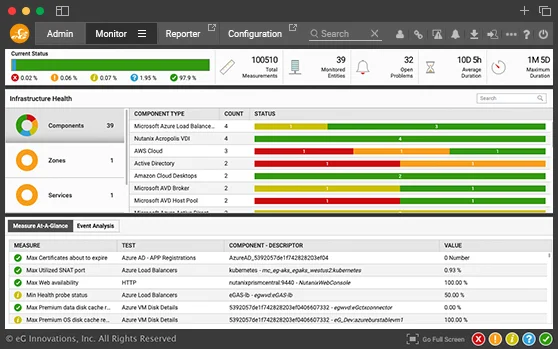Jetty monitoring for enhanced application performance
Monitor your Jetty application stack within a single-pane-of-glass and get visibility into the performance of your JVM, Servlet containers, application code, database connections, slow queries, external service calls, and more.
Free TrialWhy is Jetty monitoring important?
Jetty is a popular open-source web server and servlet container written in Java. It is developed by the Eclipse Foundation and is used to host and run Java-based web applications. Jetty is known for its lightweight, low memory footprint and embeddable nature, whereby developers can embed Jetty directly into their Java applications. It is widely used in both development and production environments.
To ensure high application performance, it is essential to monitor the Jetty application server, the Java Virtual Machine (JVM) it uses, the application components it hosts, and the infrastructure tiers supporting it. IT teams and developers need the capability to proactively detect performance problems before they impact end-users of the Java application.
Answer key questions on Jetty application delivery instantly
Jetty administrators can continuously track key health indicators such as:
Gain AIOps-driven insights with Jetty web server metrics
AIOps-driven auto-discovery and auto-baselining technologies provide rapid insights into Jetty application and server performance and availability.
Out-of-the-box intelligent metric thresholds, alerts, root-cause diagnostics and anomaly detection ensure administrators can proactively monitor and troubleshoot Jetty deployments before applications and end-users experience problems.
Key metrics monitored and alerted on include:











